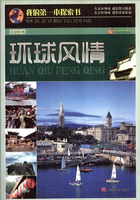Luther's books were condemned, and the Paris University drew up a list of erroneous propositions extracted from the works of the German theologians (1523). At the request of the queen-mother the theological faculty of Paris formulated a plan for preventing the spread of the German errors in France, the main points of which were that heretical books should be forbidden, that the bishops should be exhorted to seek out such works in their dioceses and have them destroyed, and that the Sorbonne should have a free hand in maintaining religious unity. Yet in spite of these precautions a Lutheran community was formed at Meaux in the vicinity of Paris, and in the South of France, where the Waldensian party was still strong, Lutheran teaching found many supporters. In some places various attempts were made to imitate the tactics adopted so successfully at Wittenberg and Berne to bring about by force the discontinuance of Catholic worship. But these attempts failed, owing mainly to the independent attitude of the local parliaments and to the energy of the bishops, who removed one of the most dangerous weapons wielded by the heretics by insisting on a thorough reform of the clergy.
But though Francis I. had been moved to take action against the sectaries, and though Calvin and other leaders were obliged to leave France, the reforming party, relying on the influence of patrons like Margaret of Navarre[1] and on the Humanist section at the university and at the newly established College de France, felt confident of ultimate success. They realised that the king was most anxious to arrive at an understanding with the Protestant princes of Germany against Charles V., and that therefore it was unlikely that he would indulge in a violent persecution of their co-religionists at home.
They knew, too, that Francis I. had set his heart on securing complete control of the Church in his own dominions, as was evident by the hard bargain which he drove with Leo X. in the Corcordat of 1516,[2] and they were not without hope that Luther's teaching on the spiritual supremacy of the civil rulers might prove an irresistible bait to a man of such a temperament. Negotiations were opened with Francis I. by some of the German reformers, who offered to accept most of the Catholic doctrines together with episcopal government if only the king would support their cause (1534). As it was impossible to arrange for a conference, the Lutheran party submitted a summary of their views embodied in twelve articles to the judgment of the Sorbonne. In reply to this communication the doctors of the Sorbonne, instead of wasting their energies in the discussion of particular tenets, invited the Germans to state explicitly whether or not they accepted the authority of the Church and the writings of the Fathers. Such an attitude put an end to all hopes of common action between the French and German theologians, but at the same time Francis I. was not willing, for political reasons, to break with Protestantism. The publication, however, of a particularly offensive pamphlet against Catholicism, printed in Switzerland and scattered broadcast throughout France, served as a warning to the king that his own country was on the brink of being plunged into the civil strife which Protestantism had fomented in Germany, and that if he wanted to preserve national unity and peace the time for decisive action had arrived. Many of the leading reformers were arrested and some of them were put to death, while others were banished from France (1535).
From this time the Lutherans began to lose hope of securing the active co-operation of Francis I., but the friendly political relations between the king and the German Protestant princes, together with the close proximity of Strassburg, Geneva, and Berne, from which preachers and pamphlets made their way into France, helped to strengthen the heretical party in the country despite the efforts of the ecclesiastical and lay authorities. In the South many of the Waldenses in Dauphiny and Provence went over formally to the side of the Calvinists. In places where they possessed considerable strength they indulged in violent attacks on the clergy, for which reason severe measures of repression were adopted by the local administrators and by the king. As in Switzerland, so too in France Calvinism proved to be the most attractive of the new religious systems. Calvinistic communities were formed at Paris, Rouen, Lyons and Orleans, all of which looked to Geneva for direction. The name given to the French followers of Calvin was Huguenots.













